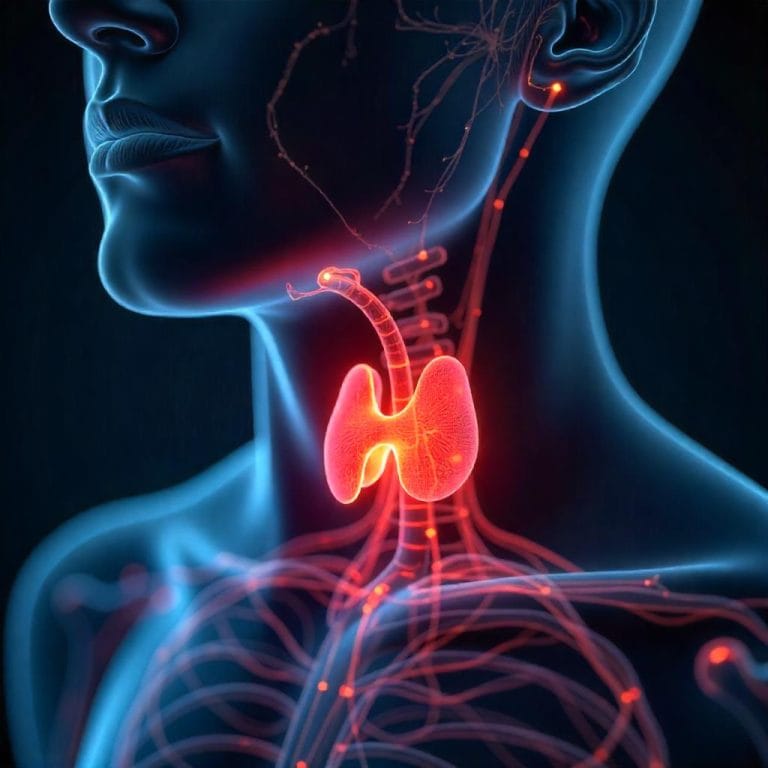Welcome to the Thyroid Gland quiz! The thyroid gland is a small, butterfly-shaped gland located in your neck that plays a big role in regulating your metabolism and energy levels. In this quiz, you’ll test your knowledge on the functions of the thyroid gland and learn more about how it affects your overall health.
Do you know what hormones the thyroid gland produces? Can you identify the symptoms of an overactive or underactive thyroid? Test your knowledge and see how well you understand this important gland in your body. Take the quiz and learn more about how the thyroid gland impacts your daily life.
Play Thyroid Gland Quiz
Instructions
- This quiz is multiple choice.
- Read each question carefully before selecting an answer.
- Choose the best answer for each question.
- You will see the missed questions with correct answers at the end of the quiz.
Quick Facts
- The thyroid gland is located in the front of your neck, just below your Adam’s apple.
- It plays a crucial role in regulating your body’s metabolism.
- Thyroid hormones control how quickly your body uses energy, makes proteins, and responds to other hormones.
- Thyroid disorders can lead to symptoms like fatigue, weight changes, and mood swings.
- One common thyroid disorder is hypothyroidism, when the gland doesn’t produce enough hormones.
- Another common disorder is hyperthyroidism, when the gland produces too many hormones.
- The thyroid gland needs iodine to produce hormones, so it’s important to include iodine-rich foods in your diet.
- Thyroid nodules are lumps that can form in the gland, usually harmless but sometimes requiring further evaluation.
- Thyroid cancer is relatively rare but can occur in the gland, usually treatable with surgery and other treatments.
- Regular check-ups with your doctor can help catch any thyroid issues early and prevent complications.
Downloads
No downloads found
Study Tips
- Create a study schedule and stick to it.
- Find a quiet and comfortable study environment.
- Remove distractions such as phones and social media.
- Take breaks every 25-30 minutes to avoid burnout.
- Use active studying techniques like summarizing, highlighting, and teaching concepts to someone else.
- Practice retrieval by testing yourself with flashcards or practice quizzes.
- Stay organized with notes, study guides, and resources.
- Stay hydrated and eat brain-boosting foods like fruits, nuts, and whole grains.
- Get enough sleep to improve memory retention and cognitive function.
- Reward yourself for reaching study goals to stay motivated.
